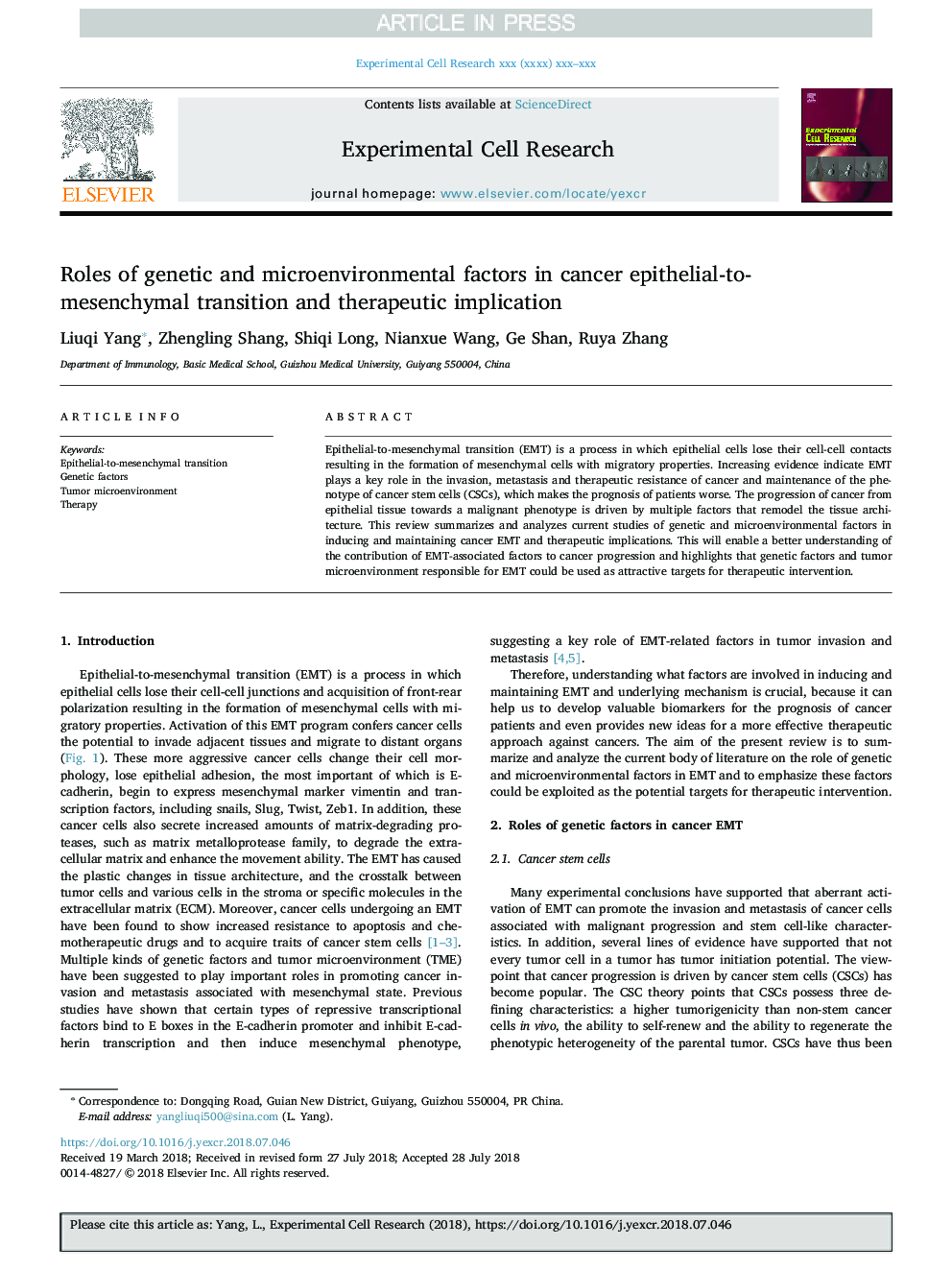| Article ID | Journal | Published Year | Pages | File Type |
|---|---|---|---|---|
| 8949682 | Experimental Cell Research | 2018 | 8 Pages |
Abstract
Epithelial-to-mesenchymal transition (EMT) is a process in which epithelial cells lose their cell-cell contacts resulting in the formation of mesenchymal cells with migratory properties. Increasing evidence indicate EMT plays a key role in the invasion, metastasis and therapeutic resistance of cancer and maintenance of the phenotype of cancer stem cells (CSCs), which makes the prognosis of patients worse. The progression of cancer from epithelial tissue towards a malignant phenotype is driven by multiple factors that remodel the tissue architecture. This review summarizes and analyzes current studies of genetic and microenvironmental factors in inducing and maintaining cancer EMT and therapeutic implications. This will enable a better understanding of the contribution of EMT-associated factors to cancer progression and highlights that genetic factors and tumor microenvironment responsible for EMT could be used as attractive targets for therapeutic intervention.
Related Topics
Life Sciences
Biochemistry, Genetics and Molecular Biology
Cancer Research
Authors
Liuqi Yang, Zhengling Shang, Shiqi Long, Nianxue Wang, Ge Shan, Ruya Zhang,
